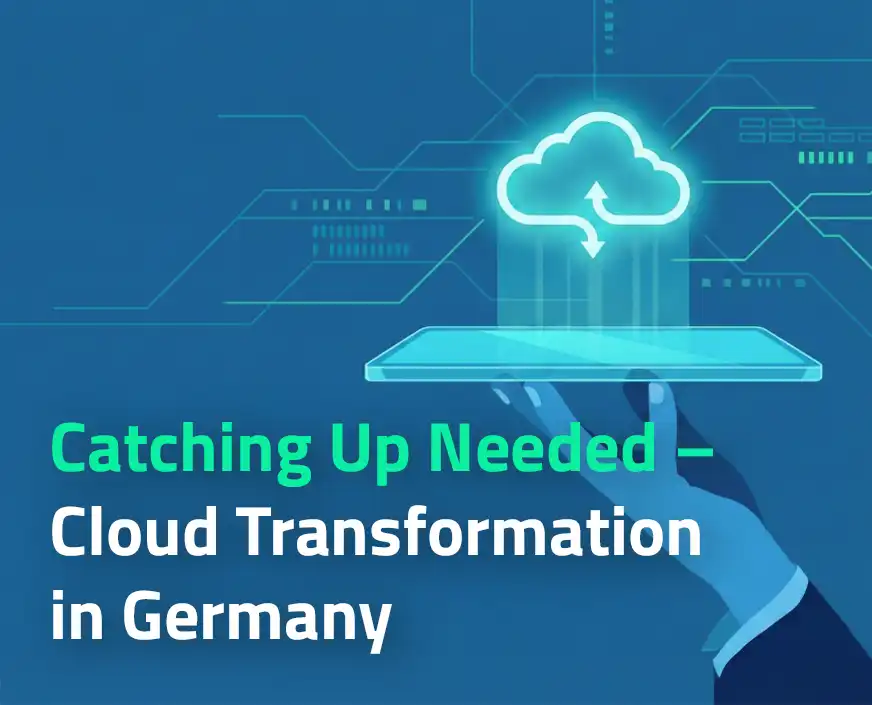IT Outsourcing: Why It's More Important Than Ever
Whether it’s customer service, external and internal communication processes, management of production processes or supply chain: All areas in companies are experiencing a high demand for digital solutions to automate, monitor, and organize business processes. Consequently, this results in a wealth of data to be processed, causing high costs and significant personnel and organizational efforts.
With the continuously growing digitalization of business processes (keyword: Digital Transformation) and the increasing requirements to manage data efficiently while maintaining the highest security standards, the question arises whether internal data management in one’s own data center is still sensible at all.
As a solution approach, IT outsourcing to external data centers and private cloud environments presents itself. On one hand, they support companies in all aspects of data storage and provision. On the other hand, they securely store sensitive company data at geographically separate server locations.
Why Moving to an External Data Center is Worthwhile
Companies considering outsourcing their IT infrastructure often face the question: Is the step towards an external data center really worth it? The answer is clear – especially when economic, technical, and strategic aspects are considered together.
A significant advantage lies in the financial relief. Operating one’s own data center brings high investment and operating costs – from the acquisition and regular renewal of hardware to personnel and energy costs. When switching to a colocation provider like firstcolo, companies only pay for the resources they actually need. Cost-intensive one-time investments (CapEx) are completely eliminated. Moreover, professional data center operators not only provide server and network technology but also take care of maintenance, spare parts management, and ongoing optimizations – all at predictable monthly costs.

Furthermore, companies benefit from the high flexibility and scalability of external IT infrastructures. Capacities can be adjusted at any time – whether due to growth, seasonal fluctuations, or strategic realignments. At the same time, colocation providers ensure optimal connectivity to leading Internet Service Providers, high availability, and maximum energy efficiency. Modern data centers like those of firstcolo rely on sustainable technologies, high-performance networks, and the highest security standards.
Another crucial advantage: access to specialized know-how. Managed services and security solutions are provided by experienced IT teams at the cutting edge of technology – without companies having to maintain their own specialized staff. This not only enables a high degree of operational security but also creates freedom to concentrate on the core business.
The Most Important Advantages at a Glance
- Cost savings: No investments in own hardware or data center infrastructure, billing based on actual needs
- Higher flexibility: Scalable IT capacities for dynamic business requirements
- Technological edge: Access to modern IT architectures, managed services, and security solutions
- Predictability: Monthly calculable costs instead of high CapEx expenses
- Expert knowledge included: Support from experienced IT specialists without own personnel expenses
Outlook: The Future of IT Outsourcing
A study by Lünendonk (“The Market for IT Services in Germany 2024”) provides interesting insights into the further development of IT outsourcing. According to this, 34 percent of the surveyed CIOs and IT managers consider it realistic to no longer maintain their own capacities for operational IT by 2027.
This trend is evident in two ways: On one hand, Software as a Service (SaaS) continues to gain importance – these applications no longer require internal IT operations. On the other hand, IT departments are facing significant demographic challenges. In the coming years, an average of 17 percent of IT professionals will retire due to age. At the same time, experts estimate that only about two-thirds of the vacancies can be filled.
This development is forcing companies to rethink their IT strategies. The increasing demand for availability, performance, and security is met with an increasingly tense staffing situation. Managed services, automation, and increased reliance on external IT service providers are therefore becoming central approaches to ensure efficient and future-proof operations.
This is precisely why at firstcolo we see IT outsourcing not just as a short-term efficiency measure, but as a strategic element of modern corporate management. Those who rely on specialized IT partners and high-performance data centers today are creating the foundation for stable, scalable, and resilient IT infrastructures – and ensuring that technological innovations can be reliably implemented in the long term.







